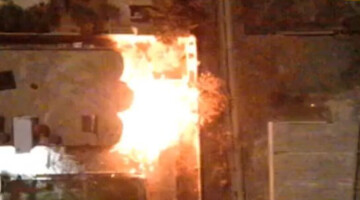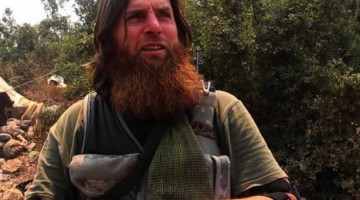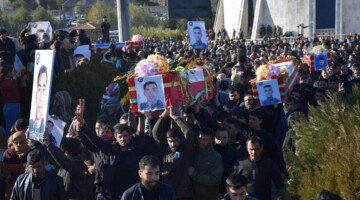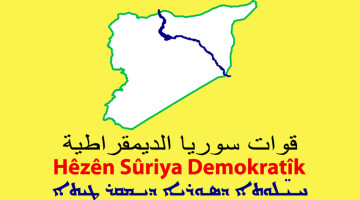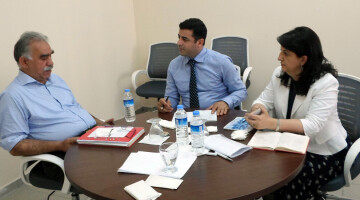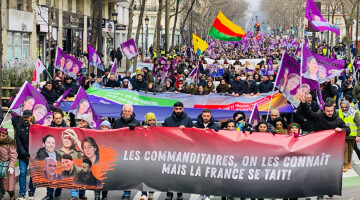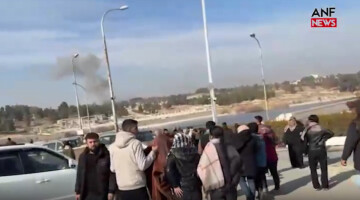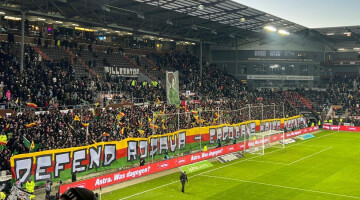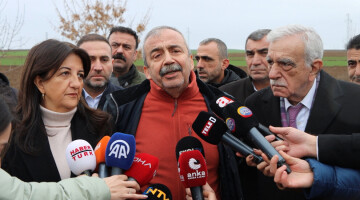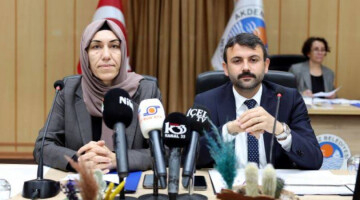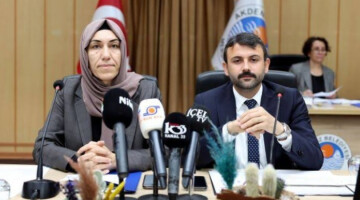Two commemorative events took place in Hamburg on Sunday. Following a memorial event for martyrs of the 14 July 1982 death fast, the internationalists Kevin Jochim (Dilsoz Bihar) and Jakob Riemer (Şiyar Gabar) were remembered in another event in the early evening.
In 1982, PKK cadres Kemal Pir, Hayri Durmuş, Akif Yılmaz and Ali Çiçek began a death fast in prison No. 5 in Diyarbakir (ku. Amed), during which all four lost their lives. Due to the brutal torture methods, the prison was given the name "The Hell of Diyarbakir" or "Hell No. 5". The resistance of the death fasters against the junta strengthened the party's support in the aftermath of the military coup of 1980. To this day, people within the movement speak of the "spirit of 14 July".
Mehmet Hayri Durmuş's sister, Ayten Durmuş, spoke at the Kurdish Association on behalf of the families of martyrs about the 14 July resistance and also remembered Mazlum Doğan, who burned himself to death in protest on Newroz 1982 and whose action led to the death fast of 1982. Ayten explained that the death fast laid the foundation for the struggle and resistance of the last 40 years. She stated that the dreams of these young men, none older than 25, planted the seeds for the revolution of Rojava and lived on in the resistance of the guerrillas in the mountains and in the connection of many young people from all over the world to the movement.
Enabling a free life of meaning and full of confidence
A memorial service for Kevin Jochim (Dilsoz Bihar) and Jakob Riemer (Şiyar Gabar) began at 6 pm at the Centro Sociale in St. Pauli. Jakob Riemer's mother and a sister and friends from his childhood and youth also came. After a minute of silence and a musical contribution by two Kurdish artists, a video was shown in which both Jakob and Kevin talked about their path in the Kurdish liberation struggle. Both explained with great enthusiasm in Kurdish their attachment to the struggle of the PKK and their rejection of a lifestyle based on consumerism and individualism. They said their search for a way out of destructive capitalist modernity led them to the mountains.
A comrade who had met Jacob personally on his way to the mountains said that the world was in debt to these young people who “fought for all of us against ISIS and Turkish fascism.” Ayten Durmuş took the floor again and pointed out that as long as the Kurds existed, the two internationalists would have a place in their hearts.
After the song Bella Ciao was sung together, a representative of the Kurdish association spoke some very touching words of farewell:
"Anyone who knew the two friends personally or has seen or read their stories knows that their gaze was always directed towards the future full of hope and belief in a better world. One knows that they wanted to open a path with their lives and their struggle to make possible, not for themselves, but for all people, a life in freedom, a life of meaning and full of confidence. One knows that it was their wish, alongside the sadness we feel, that at the same time this incredible strength and faith that the two friends used to radiate and still radiate in us, also lives on in us. One knows that we let ourselves be strengthened and guided by their sense of justice and humanity. One knows that we add more stones to the path to a better world that the two of them paved."

